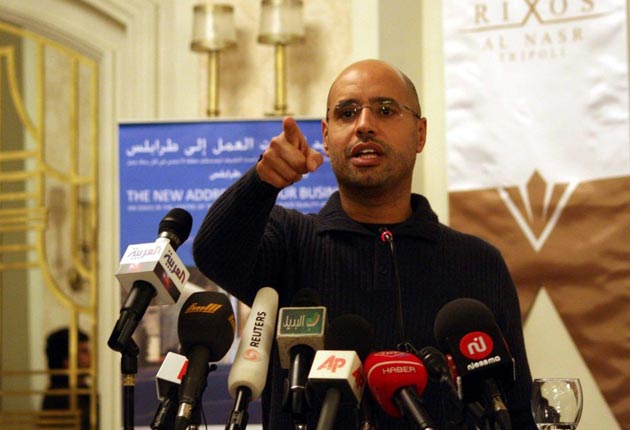World steps up attack on regime's finances

Your support helps us to tell the story
From reproductive rights to climate change to Big Tech, The Independent is on the ground when the story is developing. Whether it's investigating the financials of Elon Musk's pro-Trump PAC or producing our latest documentary, 'The A Word', which shines a light on the American women fighting for reproductive rights, we know how important it is to parse out the facts from the messaging.
At such a critical moment in US history, we need reporters on the ground. Your donation allows us to keep sending journalists to speak to both sides of the story.
The Independent is trusted by Americans across the entire political spectrum. And unlike many other quality news outlets, we choose not to lock Americans out of our reporting and analysis with paywalls. We believe quality journalism should be available to everyone, paid for by those who can afford it.
Your support makes all the difference.The international effort to throttle Libya's finances was stepped up yesterday when the US froze the assets of the country's sovereign wealth fund and several European governments moved to stymie other interests held by the Gaddafi regime.
But there is a growing row in the European Union about the status of the Libyan Investment Authority, a $70bn fund which acts as an umbrella organisation for a number of Libyan state-owned assets. Several countries, including Italy, where the LIA has invested heavily, have argued as recently as yesterday that EU and UN orders to freeze the assets of certain Libyans with close links to the Gaddafi regime do not apply to the LIA.
A number of individual countries have already acted. In the UK, about £2bn worth of interests have now been frozen, including interests thought to be held by HSBC, which is understood to act as custodian for the Libyan Investment Authority. This includes the £1bn of assets thought to be directly linked to Gaddafi and a number of his acolytes that were frozen last week when the EU order was issued. Yesterday, a spokesman for HSBC refused to discuss any connection with Libya. "The bank never comments on its clients' interests. And this is no exception," he said.
The LIA was established in 2006 after Libya was welcomed back into the international fold. Until the recent violence in Libya, it was feted by a number of leading politicians, including Tony Blair and Silvio Berlusconi. Prince Andrew, who acts as a roving trade ambassador for the UK, met Colonel Gaddafi three times between August 2008 and February 2009 and his son Saif al-Islam twice. The meeting between Prince Andrew and Saif in October 2007 took place at Buckingham Palace. Buckingham Palace yesterday stressed that the meetings were in line with government policy at the time.
The EU failure to act against the LIA was put into sharper focus on Thursday when US Treasury Secretary Timothy Geithner said the Americans had seized assets, including those owned by the sovereign wealth fund, worth $32bn. President Obama described the action as the "most rapid and forceful set of sanctions that have ever been applied internationally".
Several European administrations responded to President Obama's comments by stepping up their efforts against the Gaddafi regime. In Vienna, the Austrian Central Bank extended the country's freeze list to include Mustafa Zarti. Crucially, Mr Zarti, who holds an Austrian passport and was not on the original EU list, is the deputy head of the LIA. Officials at the Austrian Central Bank described Mr Zarti as, "a close confidant of the Libyan regime" and his addition to the freeze list came after he was questioned by police about links to Gaddafi's regime.
The move against Mr Zarti – who is a close friend of Saif, puts further pressure on Circle Oil, an Irish exploration company listed on the London Stock Exchange. Nearly a fifth of Circle's shares are owned by Libya Oil Holdings, a state-owned division of the LIA.
The Irish Finance Department yesterday said: "The fact that these Statutory Instruments are not yet in place does not effect the obligation to freeze assets under the EU Regulation." The company said it was, "seeking to comply [with the regulation], following due process and taking legal advice".
Circle Oil's position differs from Pearson, the FTSE 100 publishing group that owns the Financial Times. On Monday, the group confessed that the LIA's three per cent stake was "abhorrent". A day later, Pearson froze the LIA's shares, but refused to be drawn on why. Yesterday, a spokesman refused to discuss any link Pearson's lawyers had found between the LIA and those named on the freeze order.
Sources close to the Italian government said that there were no plans to freeze assets owned by the LIA. Italy's stance means that defence company, Finmeccanica, in which the LIA has a two per cent stake, is unlikely to act. Finmeccanica said freezing shares was illegal.
Join our commenting forum
Join thought-provoking conversations, follow other Independent readers and see their replies
Comments